-
12 Questions, Book of Mormon, Book Reviews, Essential Texts in Mormon Studies, Features, Mormon Studies, Scriptures
•
•
30 responses
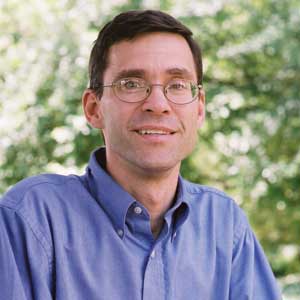
To cap off our roundtable review of Grant Hardy’s new book Understanding the Book of Mormon we’re fortunate to feature an interview with the book’s author. The interview will be posted in two parts. Our thanks to all who have participated, and especially Bro. Hardy. Read More
-
•
•
54 responses
Reading back through the recent posts at Keepapitchin (sorry Ardis, I haven’t been keeping up :) ), I found a great piece on those long-lived, die-hard “doctrines” that aren’t really doctrines at all. Things like how Jesus was married…with children…to multiple wives(?!?!). Or how blacks couldn’t receive the priesthood because they were [insert made-up reason here] in the pre-mortal life. Or any number of other eclectic tidbits (I had mission companion who had been taught that Cain survived the Flood in a specially built one-man submarine). She closes with this question: Why the heck do we do that? Why do we perpetuate… Read More
-
Church History, Cornucopia, General Doctrine, Latter-day Saint Publications, Latter-day Saint Thought, Lesson Aids, Life in the Church, Mormon Review, Mormon Studies, Music and Poetry, News and Politics, Parenting, Sports
•
•
18 responses
A few of these are forthcoming, a few have appeared recently. I am compelled to read them all, as soon as I can get to them. Now Available Charles Harrel,“This Is My Doctrine”: The Development of Mormon Theology (Kofford Books) “In this first-of-its-kind comprehensive treatment of the development of Mormon theology, Charles Harrell traces the history of Latter-day Saint doctrines from the times of the Old Testament to the present.” I have my doubts that someone who does not equally control original Biblical sources and LDS history, as well as the vast amounts of secondary literature on historiography, exegesis, etc.… Read More
-
•
•
37 responses
(Note: this is the fourth part of a several-part series. You can read previous installments here, here, and here.) Quick review: prior to November 1990, missionaries and their families paid the actual cost of their missions. Moreover, parents would send money directly to their sons and daughters, with no intermediation from the Church. In May 1990, the U.S. Supreme Court ruled in Davis v. United States that such payments were not tax-deductible, notwithstanding language in the Internal Revenue Code that contributions made “to or for the use of” the Church would be deductible. In November 1990, the Church announced that,… Read More
-
•
•
22 responses
A few years ago I came across a list of Mormon Studies courses complied by BYU professor Gideon Burton in 2008, the same year that the Claremont Graduate University started their Mormon Studies program and a year after Utah State started its program. Since it has been a few years, I thought Gideon’s list should be updated. I believe it gives a sense of how Mormon Studies is developing. Read More
-
•
•
110 responses
I didn’t see anyone suggest “shunning” — or being rude or unkind — as being appropriate. But I do keep seeing repeated claims that it’s wrong. It seems a straw man that keeps being beaten down. First, yes, I have gay friends. Most of them were childhood friends, most of them former LDS. The rest are from my experience in performing arts (stereotypical, but true) or clients. I simply don’t run across a lot of gay folks at church or in homeschool groups or in playgroups, which is where I spend most of my public time. The “dilemma” some have,… Read More
-
•
•
14 responses
While to some it may seem like “the work of salvation” is about missionary work, the Church takes a much broader view. In this chapter of Handbook 2, the work of salvation is defined as including “member missionary work, convert retention, activation of less-active members, temple and family history work, and teaching the gospel.” Clearly salvation doesn’t end with baptism. Read More
-
•
•
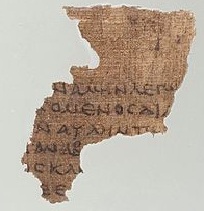
The book of Hebrews is what scholars call a “homiletic midrash” on Psalms 110, meaning that it a sermon responding to Psalm 110. It might be useful to read that psalm before reading Hebrews and to keep it in mind as you read Hebrews. Most contemporary scholars, including some LDS scholars, do not believe that Paul wrote this book. It is last among the letters of Paul because those compiling the New Testament (in the early 3rd century AD) were not sure that Paul had written it. There are a variety of reasons for these doubts, but the most significant… Read More
-
•
•
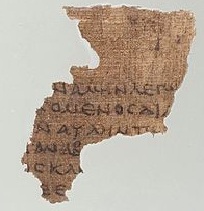
I have to confess that Romans is perhaps my favorite book of scripture. Given the way that most Latter-day Saints think of Romans, that marks me as at least strange, if not perverse. It also means that I will have to restrain myself to keep the notes for this lesson to a reasonable length. To do that I have selected a few verses that I think get at the heart of Paul’s message and focus on those. I have also appended an outline of the book as a whole so that you can perhaps understand Paul’s overall message better. Chapter… Read More
-
•
•
56 responses
Every once in awhile, I read or hear something that just zings. Read More
-
•
•
39 responses
During the fall, Sundays after Church are reserved, among a not insignificant but mostly male portion of Church members in the United States, as a time for enjoying a traditional American pastime—what one commentator described as “violence punctuated by committee meetings.”[1] And the number of Mormons who are paid to participate in these meetings has approached 40 this year. Read More
-
•
•
11 responses
Next Tuesday, the Brunson household starts a brand-new adventure. At 9:00 am, my oldest daughter starts kindergarten. Though I’m not sure I’m ready to have such a grown-up daughter, she didn’t ask my permission to get this old. And she’s excited. And she’s completely and totally ready for it. Growing up, my dad gave me and each of my siblings a father’s blessing the night before school started. I’m pretty sure he kept doing it through my first year of law school. (I got married between my first and second years, and at that point, didn’t go back to San… Read More
-
•
•
9 responses
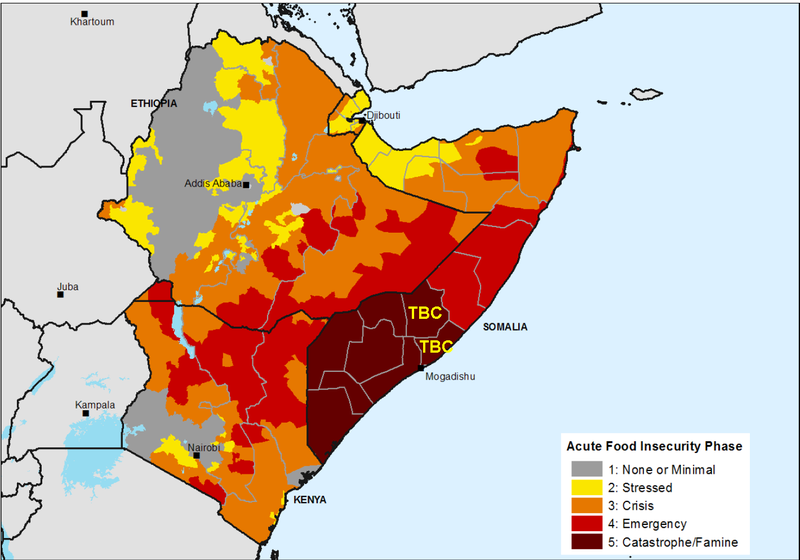
Somalia is the kind of country where a New York City Department of Transportation worker can be invited over to become prime minister. Following a year of primely ministration, he quit yesterday…and now he’s back to working at his old job in New York City. But back to Ghedi. Ghedi, 13 years old, was born five years after the events that inspired Black Hawk Down. To get a quick sense of his growing up years, take a look at Wikipedia’s Modern History entry for Mogadishu. You’ll note that the subheading provides these links: Main articles: Somali Civil War, Battle of Mogadishu (1993), Battle of… Read More
-
•
•
27 responses

Here’s a second post, responding to issues raised in Alison’s Serving on the Sidelines. Moses 6:59-60: That by reasons of transgression cometh the fall, which fall bringeth death, and inasmuch as ye were born into the world by water, and by blood, and by the spirit, which I have made, and so became of dust a living soul, even so ye must be born again into the kingdom of heaven, of water, and of the Spirit, and be cleansed by blood, even the blood of mine Only Begotten; that ye might be sanctified from all sin, and enjoy the words… Read More
-
•
•
35 responses
Alison has a talent for writing trenchant posts in general – posts that point to the heart of an issue – particularly as concerns women’s issues.[1] This post is a response to her latest (please read first).[2] Read More
-
•
•
9 responses
You’re given a pair of binoculars. Read More
-
•
•
7 responses
One of the difficulties in reading the Old Testament is an unconscious assumption of uniformity between their time and ours. Modern readers often assume that they shared the same doctrinal understandings, worldview/Weltanschauung,assumptions, or culture as we do today. This is not the case, and often contributes to difficulties of interpretation and understanding.1 The Old Testament worldview and cultural setting turns out to have much in common with Lord of the Rings.2 If you want to get a general feel for the world of the Old Testament, watching or reading Lord of the Rings approximates that foreignness in general, if not… Read More
-
•
•
77 responses
Commenting on my controversial/popular (also tedious/stultifying) post “Does Gender Matter?” — asking if it’s reasonable to claim both that gender matters enough to make all sorts of exclusions and that it doesn’t matter enough to require more equal representation — led me to describe a long-held frustration: Men create worlds, men direct the work of the gospel, men bring to pass immortality. Whatever we see God doing are things men can anticipate doing should they be exalted. What will women do? Will we still be in the Relief Society room asking the bishop for permission to get someone to teach… Read More
-
•
•
7 responses
Craig Harline, Conversions. Read More
-
•
•
26 responses

It’s going to be a long day for some East Coast readers, but at least you’ve still got Internet. This thread is to share your first-person accounts and post helpful information. My contribution: Weather Underground, the best online source for hurricane tracking information. As of 11 AM EDT Saturday, their tracking map forecasts a storm path for Irene passing directly over New York City at about 8 AM Sunday morning. Read More
-
•
•
51 responses
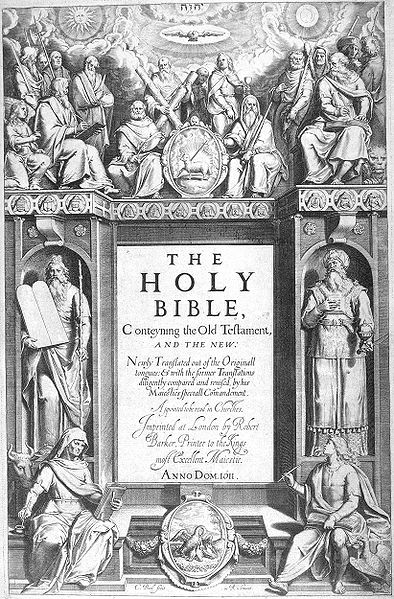
On Saturday June 11, nearly 200 YSA gathered at the Lincoln Center chapel, the same as houses the Manhattan Temple, for a YSA conference that centered on the 400th anniversary of the King James Bible. Saturday from 1-4, three one-hour workshops were held on the Bible. Three Bible Nerds were on hand to teach: Jon H (MA, Biblical Studies, Yale) covered the writing and transmission of the books of the Bible; Jon R (MA, New Testament, Duke) spoke on using modern translations and other study aids, with extensive slides and books on display. We each submitted a brief teaser description.… Read More
-
•
•
14 responses
Times and Seasons is pleased to welcome Ben Spackman as our latest guest blogger. Ben received his BA in Near Eastern Studies from BYU and an MA in Near Eastern Languages and Civilizations from the University of Chicago, focusing on philology and Semitic languages such as Arabic, Hebrew, and Aramaic. During his graduate summers, he taught New Testament, Book of Mormon, and Biblical Hebrew at BYU. He has taught various courses in a volunteer capacity for the LDS Church Education System since 2003. Most recently, Ben was the managing editor of the Mormon Portal at Patheos.com. Ben has lived in… Read More
-
•
•
22 responses
[Note: this is the third (yes, third) part of a many-part series. You can read Part 1 here and Part 1.5 here.] [Note #2: A friend points out that I left some information out of this post that is helpful in understanding what I’m talking about. That information is in Part 1, but it’s been a long time since I posted Part 1, so I’m adding some clarifying details in bold. Thanks, SG.] Pop quiz: when you think “Mormons” and “US Supreme Court,” what do you think? (The correct answer is, of course, Reynolds.[fn1]) For many of us, though, another less-known… Read More
-
•
•
19 responses
On a recent trip, I took along as reading material Christianity: A Very Short Introduction (OUP, 2004) by Linda Woodhead. Like all of the books in the wildly successful VSI series, the book is short but informative. I want to focus on the author’s analysis of how views about divine power and earthly authority can be used to classify Christian churches and denominations, then try to place Mormonism and the LDS Church within that classification scheme. Read More
-
•
•
6 responses
In just less than 2 hours, I’ll teach my first class of the 2011-2012 school year. Which means that summer’s over. (Yes, I realize that it may not be for you personally—I know some places have been in school for the last couple weeks, while the Chicago Public Schools don’t start for another two weeks. And many of you have graduated, anyway. But go with me here.) Because of the impending classes, I’ve been thinking recently about memorable classes and teachers I’ve had. And one moment keeps sticking out in my mind: 11th grade English. We had just finished Hawthorne’s… Read More
-
•
•
98 responses
Blogger Mitch Mayne writes: “I am Mitch Mayne, and I am an openly gay Latter-Day Saint. On August 14, 2011, I was sustained as a member of the Bishopric in the Bay Ward of the San Francisco Stake of the Church of Jesus Christ of Latter Day Saints (the Mormons).” Take a look at the post, it’s fascinating. (I’ve confirmed this with multiple sources, too. It is not an urban legend. Brother Mayne just spoke about his calling in Sacrament.) This seems like a big step, and a potentially positive development. It also seems somewhat precarious, and raises some questions.… Read More
-
•
•
33 responses

This weekend I got to drive past the Ogden Utah Temple, which is currently surrounded by a high fence as it undergoes a major renovation. While there is nothing new with renovating a Temple, as far as I can tell, this is the first time that the outside appearance of a Temple has had such a significant change. What does this mean? Read More
-
•
•
155 responses
Yesterday Jake Tapper asked John Huntsman about the church’s “racist rules” of the past. Huntsman said, “I think it was wrong, plain and simple. I think it was wrong.” When the church ban on giving the priesthood to blacks was lifted, when I was 14, every single LDS person I personally knew rejoiced. My mom ran to the stairs shouting to tell us. We jumped up and down. In our mostly Mormon community of Orem, Utah, people literally flooded into the streets to hug and talk as word spread. Over the years I have come to my own conclusions about… Read More
-
•
•
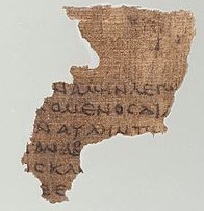
Background 1 and 2 Corinthians are two of perhaps four letters that Paul wrote to the saints in Corinth. The first letter (referred to in 1 Corinthians 5:9-13) has not been preserved. 1 Corinthians is the second letter, written partially in response to reports of problems in Corinth and partially in response to questions that the Corinthians had written to ask Paul. As we can see in 1 Corinthians 16:3-6, when Paul wrote 1 Corinthians, he intended to visit Corinth later, and he promised to send Timothy to Corinth. Timothy may have been the messenger who carried 1 Corinthians to… Read More
-
•
•

Every so often I insert this reminder: These are study notes, not notes for a lesson. Of course, studying the chapter can help one prepare for the lesson, and the same questions used for study can be used to teach a lesson. But the primary purpose of these notes is to help people think about and prepare to talk about the Sunday School lesson. Recall that in this part of his letter Paul is responding to questions that the Corinthians have asked him by letter. (See the questions for lesson 33.) Chapters 7-15 comprise his response to their questions, and… Read More
